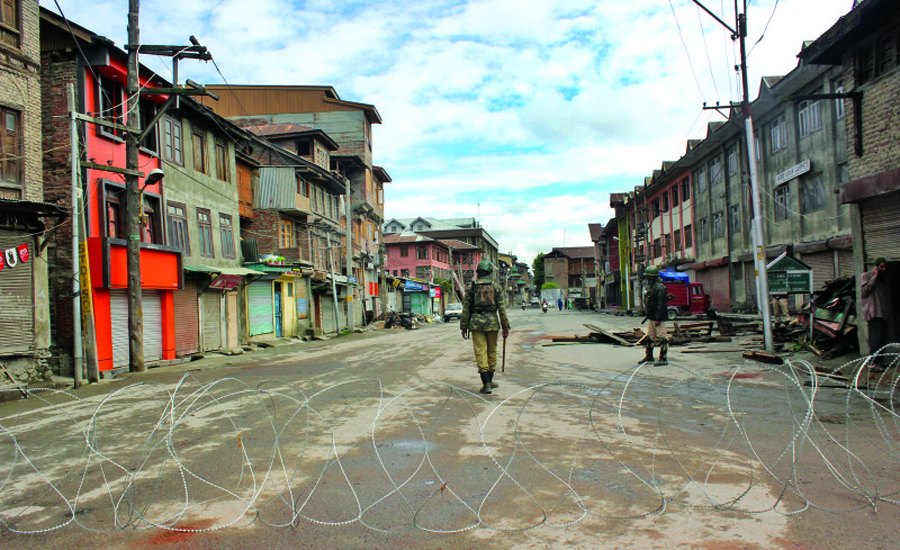India converts entire Occupied Kashmir into big jail as curfew continues

SRINAGAR (KMS) – In Occupied Kashmir, Indian authorities continued to impose curfew and other restrictions for the second consecutive day on Monday, converting the entire territory into a big jail through huge deployment of forces.
All educational institutions remained closed while the entire population was held incommunicado as it has no contact with the external world through Internet or telephone. The local newspaper failed to update their online editions while some of them could not be published due to curfew.
People are facing shortage of daily commodities including milk, dairy items and medicines. Curfew also remained imposed in all major cities and towns of Chenab valley districts in Jammu region. The entire resistance leadership, including Syed Ali Gilani and Mirwaiz Umar Farooq, continued to remain under house arrest or in jails.
The unilateral decision by India to split Ladakh from Jammu and Kashmir triggered shutdown and protests in Muslim majority Kargil district. All public and private establishments were closed while traffic was off the road. All religious and political parties of Kargil district at a joint meeting unanimously condemned the Indian move.
A large number of Kashmiri community members held a protest demonstration in London against the abrogation of Article 370 by Narendra Modi led Indian government. The demonstrators urged the world community to take notice of blatant violations of UN resolutions on Kashmir by New Delhi.
In Chandigarh, students of Punjab University staged a protest to register their resentment against the anti-Kashmir bill in the Indian parliament. The students vowed to stand by Kashmiri people.
A British Member of Parliament and head of the All Party Parliamentary Group on Kashmir, Debbie Abrahams, in a letter to the UN Secretary General, Antonio Guterres, expressed concern over the abrogation of Article 370, increased tension in South Asia and use of cluster bombs on unarmed civilians in Kashmir by India. He said if this proves true, this would be a violation of the Convention on Cluster Munitions and international humanitarian law. While stressing the need for sending international observers to assess the situation in Occupied Kashmir, he also asked the UN chief to consider the United Nations’ role in this regard.
Other Members of British Parliament, Andrew James Griffiths, Paula Sherriff and Muhammad Yasin in their letters to their Foreign Secretary Dominic Raab asked him to prevail upon Indian Prime Minister Narendra Modi to stop human rights violations in Kashmir and seek a solution to the Kashmir issue through talks.







